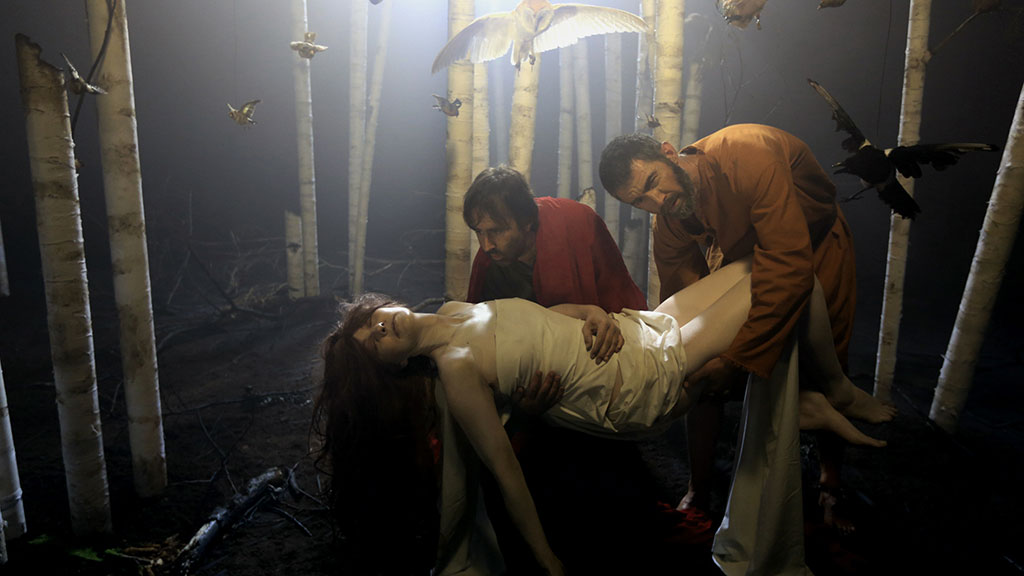The Deathless Woman
2019, 89’. Writer-Director: Roz Mortimer
THE DEATHLESS WOMAN is a fantastical re-imagining of the history of the Roma people. Spanning 77 years from the murder of a Roma matriarch by Nazi soldiers in a forest in Poland in 1942 to the rise of the far-right in contemporary Europe, Mortimer’s dark thriller takes us on an intense journey led by the ghost of the matriarch and a character based on the filmmaker herself.
This hybrid documentary combines first-person witness testimony with Mortimer’s unique brand of re-enactment. Mortimer hand-builds all of her sets – from the burnt birch forest of the Deathless Woman’s grave in Poland, to a scale model of the Gypsy camp at Auschwitz-Birkenau, to the underwater aftermath of a Nazi massacre in Hungary.
Eight years in the making, THE DEATHLESS WOMAN is an elegiac and urgent film. A ghost story for the 21st Century.
A powerful and poetic account of WWII Roma genocide and its contemporary resurrection. Hugely successful on both an artistic and a political level, it is a remarkable piece of work.
Trisha Tuttle (BFI London Film Festival Director)
Captivating experimental feature.
Screen on Screen
Effortlessly weaves together how the historical persecution of Romani people connects with their present day reality and the rise in far right fascism across Europe A must watch.
Ake Dikhea Festival of Romani Film Jury
Watch The Deathless Woman on ![]() or on
or on ![]()

Context
The Deathless Woman was made after writer-director Roz Mortimer undertook a prolonged period of research in archives and travelled extensively in Central and Eastern Europe to interview people and uncover unmemorialised sites of atrocity against the Roma.
She participated in memorial events in Poland, worked with Roma communities in London, Poland and Hungary and with Roma activists and academics, many of whom were attached to this project as consultants. Collecting testimonies from witnesses, many of whom publicly shared their own family’s experience during WWII and beyond for the first time left an acute sense of responsibility to make these stories heard.
Up to 500,000 Roma are believed to have been killed during WWII, possibly half of the Roma population in Europe at that time, and to this day activists battle for recognition of this event.
Roma are today still one of the most marginalised minority ethnic groups in Europe. At a time when xenophobia and racism are rising again across the world, it feels crucial to acknowledge the undocumented realities of Roma, Sinti and Gypsy people. More than 10 million Roma live in Europe, and continue to face state-sanctioned segregation in schools, forcible evictions and violent racist attacks.
The Deathless Woman visualises and connects the traumatic past of Roma to other traumatic pasts and to the traumatic present, offering a space for reflection on past histories and discussion about how we can move towards a more tolerant society.






